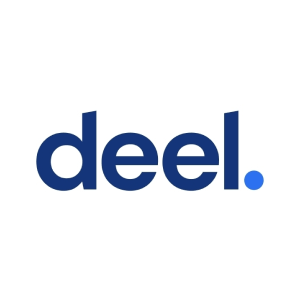Matt Redler, co-founder and CEO of Panther, on building a modern employer of record
 Jan-Erik Asplund
Jan-Erik Asplund

Background
Matt Redler is the CEO and co-founder at global payroll company Panther. We talked to Matt about the talent crisis that has been accelerated with COVID and the rise of remote work, and how global payroll companies like Panther are looking to help startups and other companies compete for the best people. We also go into the competitive landscape of global payroll, both with respect to the multi-billion dollar incumbents and other startups.
Questions
- What's driving this trend of companies switching away from legacy payroll and into companies like Panther?
- What kinds of companies are so far finding this most useful? You mentioned bigger companies "graduating," but there's also a number of startups on your customer page. What does the customer mix look to you right now, and how do you think that might trend?
- Are companies using Panther alongside an existing domestic payroll system, or are you seeing them starting to put all payroll—both international and domestic—on Panther?
- What sort of distribution are you seeing between companies hiring employees versus contractors?
- Internally at Panther, what are some tenets of the culture that you see day to day in operations?
- Thinking about Panther and more VC-funded players like Papaya, Remote and Deel, I'm curious for your take on what sorts of things are just table stakes in this competitive landscape, and what really separates the winners and losers long-term?
- Can you talk about how Panther monetizes? In particular, is the amount of volume with respect to exchange rates a way to monetize? Does it help you offer savings back to customers?
- This gets to a bigger theme that we're thinking about, which is that there are billion-dollar businesses in the payroll space but they all have very little market share. Do you see the future as involving still a fair amount of competition, or is it more likely that we'll see consolidation? For example, Rippling has an argument about building a platform combining payroll, access management and endpoint management as a means of consolidating the space. Are you seeing things in a similar way, with more of an international focus?
- Is there also a vision to replace domestic providers, so that you have only one unified payroll for paying all of your domestic and international employees?
- I'd love to talk more about services and overall how you think about them. Is the point customer acquisition or more about retention?
- Is there anything that we haven't talked about that you feel is important for understanding Panther?
Interview
What's driving this trend of companies switching away from legacy payroll and into companies like Panther?
The big whine now of our industry is that startups everywhere are facing a talent crisis. Roles are taking forever to fill and tech salaries are rising astronomically. We've hit this realization recently that the idea that we had to live around work is false. That has unlocked this new body of talent. Startups are realizing that the world is their talent pool.
That has really brought to light this—not just standard payroll industry—but this special industry that Panther is a part of. It's called the "employer of record," which means that instead of companies having to set up their own foreign subsidiaries and local bank accounts, learn the local employment law and figure out local accounting, legal, HR and payroll, they get to use our infrastructure as a service.
That industry has been around since the 80's, and many of the incumbents have been some of the fastest growing companies out there. Velocity Global was the fourth fastest growing company in the States in 2016, and Globalization Partners hit a billion dollars in ARR in 2021 while growing 50% year-over-year. There's a number of massive players. The problem, though, is that these legacy companies are professional service companies. They operate these workflows out of Excel sheets sent back and forth over email, and they use a whole kind of house of cards of partnerships to facilitate their service. They end up being incredibly inefficient, expensive—everything that could go wrong. Most customers find themselves wanting to graduate as soon as possible and build their own infrastructure. That's the history of this market.
Panther is going in to rebuild things from the ground up with technology in mind: Panther owning the entire stack, everything that needs to be done more than once is automated.
What kinds of companies are so far finding this most useful? You mentioned bigger companies "graduating," but there's also a number of startups on your customer page. What does the customer mix look to you right now, and how do you think that might trend?
Our customer mix is a bit wild. First of all, geographically speaking, our customers are literally all over the world. They range from a startup of two people, where they need help employing a co-founder who lives in another country, all the way to several multi-billion dollar public companies.
The old way of hiring globally—having to set up all this infrastructure yourself—makes no sense. It's a foreign, onerous process. It costs an arm and a leg, and it takes forever. It's intuitive for companies of all sizes to use a plug-and-play solution that does everything end to end, where they don't even need to think about location. You don't need to think, "Since this is Brazil, does that mean this new candidate needs to have a medical checkup at a doctor's appointment before starting payroll?" You don't need to think about whether, if you're in Germany, you need a translator to translate an employment agreement. It doesn't matter, it's just: "Maria was the best person for the job. We want to hire her." Panther handles all the tricky bits.
Are companies using Panther alongside an existing domestic payroll system, or are you seeing them starting to put all payroll—both international and domestic—on Panther?
Panther is tangential to U.S. payroll software. You use your Gustos or your Ripplings and then, for all your international employees, you use Panther.
What sort of distribution are you seeing between companies hiring employees versus contractors?
Today, Panther is focused on global employment. What we've seen historically—and a few of our competitors haven't really helped with this because they've been pushing the wrong compliance narrative—is that a lot of companies have pretended that employees are really contractors. But the truth is that a contractor is somebody external to the company. They're not allowed to have any management. They're even allowed, without telling you, to subcontract the service and pay somebody else to do it. Really what happens when you're misclassifying a "should be employee" as a contractor is you're giving that person a second-class experience: no benefits, no tax withholding, and a crap credit score because they don't have real employment and real income. It's a total second-class experience.
But it's also a major compliance issue for two reasons. Number one, because it's tax evasion. Nobody's paying the local employer taxes. Number two, when it comes to IP—which is the most important thing for startups that are looking to get acquired or IPO—if the legal agreement between you and the individual you're working with does not accurately describe the relationship, it puts a lot of things into question. The IP is absolutely far from airtight. That's why our focus to date has been on making global employment so simple, affordable, and straightforward that there's no reason to misclassify.
When you're utilizing an employer of record service, there's no risk of misclassification because the employer of record is employing the individual on your behalf. It's a full-time employee, and they have all the rights, privileges and benefits of an employee. But when you use, for example, Deel's contractor platform, Deel is not contracting that person on your behalf. They're just giving you a template and charging you $50 a month for it. But it's a direct agreement, and if that is not really the relationship, it's a six figure fine per case for shadow employing this individual.
However, there are actual use cases for hiring people as contractors. Think of these as freelancers, external service providers. Panther will very, very soon, in a number of weeks, launch a contractor-management tool to make it easy to manage your entire global team through the platform.
Internally at Panther, what are some tenets of the culture that you see day to day in operations?
Two things that come to mind. Number one is being mission-driven. We have been able to recruit some incredible people that I'm super blessed to work with that are way out of our league. A huge part of this is that everybody wants to see a world where it's fair, where there's no birth lottery, where you don't have to leave your country and leave your economy behind in a cycle of poverty to access opportunity. Our team represents that. We actually eat our own dog food. We're just shy of 30 people in 12 different countries. Super culturally diverse and we have everybody share their own stories. Some of them have never had a legal framework for their employment—it's absolutely sickening. So it's mission-driven: we all know why we're putting ourselves in this hairy, red-taped market.
I would say number two is: delight, delight, delight. It's not enough to be there to help our customers be successful. I feel like that word is the baseline. It's about going above and beyond and being surprisingly good at being there to support our customers no matter what they need, whether that's solving issues on the platform in minutes, to everybody from the CEO to the engineers are on the chat-bot. That's what it is.
Thinking about Panther and more VC-funded players like Papaya, Remote and Deel, I'm curious for your take on what sorts of things are just table stakes in this competitive landscape, and what really separates the winners and losers long-term?
So, some background. For example, the Deel team has been contractor-first since they first began. Their mission has always been to simplify global contracting. They moved into this space because it's a nice opportunity, but they're not the team built for this. The Remote guys come from GitLab, where they used a bunch of these legacy employer of records, had a crappy experience, and they were like, "Let's make sure that, instead of emails back and forth, there's a UI." Papaya doesn't do anything. If you go to Papaya Global's FAQ—to speak through facts rather than opinions—the second question, last time I checked, was basically, "Why do we outsource literally every service that we offer?" They claim it's because "We can have experts do it." They're doing none of the hard work. That's why their Countrypedia is completely out of date about local legislation. They're literally outsourcing compliance.
Panther is doing the hard work, whether that's employment agreements being smart templated, tied to payroll workflows, instant and reliable, including translation, to systematic money movement around the world so that it doesn't cost $500 per person to run an off-cycle payroll, to getting rid of the security deposit. Here's something interesting. Since employers of record take on liability by employing our customers' employees on their behalf, it's standard in our industry to take between one and three months' worth of payroll as a security deposit. While it's technically not an expense, this is money that the customers don't get back until all their employees have left or something, so it's as close to an expense as one can be that's worth several months of burn. So we're innovating on that space too to get rid of the payroll deposit.
Panther's about doing all the hard work so that we can get rid of any reason why any company would ever do this by themselves ever again. Everybody else is a temporary solution, a stop gap: it's so expensive, it's multiple HR systems, it's a nightmare, it's filled with mistakes, people don't get paid on time. You can't mess up payroll. It's like plumbing. Doing things in an automated way over time is the biggest differentiator.
The hard part about it though, to be fair to these other guys, is you don't notice these things as a customer until they fuck up. But when they screw up, it's your employees' payroll. We just won a quarter of a million dollar contract from Deel because they sent an employment agreement to an employee before it was ever approved by the company. They're scaling their manual operations behind the scenes as fast as possible because they're growing really fast. Props to them. But it's really hard to go back in time. Literally there's a quote from Parker Conrad where he's like, "We did this at Zenefits and it was almost impossible to go back, so for Rippling, we just started from day one." That's how we think about building at Panther.
Can you talk about how Panther monetizes? In particular, is the amount of volume with respect to exchange rates a way to monetize? Does it help you offer savings back to customers?
A little bit of both. Today, the primary way Panther monetizes is through a SaaS fee. We're just a flat $500 per employee per month anywhere in the world. However, one of the reasons why we're innovating so hard when it comes to automating the entity operations is because we're trying to make Panther free of charge over the next couple of years. We want to be like a Ramp or a Main Street, where it's just an incredible product that you get for free.
Our real focus is on being the world's largest employer. We believe in a world where, because of remote work, it will be so regular for every knowledge worker position to be optimized by hiring the best person on the planet. We'll see at an incredibly increasing rate Americans working for companies all over, companies all over hiring people from other countries, and Panther will own the employment relationship. Our big strategy is working towards getting rid of all the barriers so that we can be the world's largest employer and so that no company ever has to build their own subsidiary again, regardless of scale.
That allows us to control the direct deposits of global companies and have a foundation for building a platform of really exciting, high-margin, embedded fintech services that are magically tailored to the problems that our customers and their teammates have. Think everything from employment verification, payroll advances, debit cards, benefits, and even—if we move away from fintech for a moment—capturing value around what we're defining as "the remote working stack," so everything from international recruitment, to data around what people are being paid all around the world for different roles, to even physical equipment rentals all around the world. The employer of record is the wedge to something much larger.
From Panther's perspective, there's something really exciting about it. It's more powerful than payroll. It's owning the actual employment relationship. We sit directly in the cross-border flow of funds of what we believe will be trillions of dollars worth of salaries, taxes, and benefits.
This gets to a bigger theme that we're thinking about, which is that there are billion-dollar businesses in the payroll space but they all have very little market share. Do you see the future as involving still a fair amount of competition, or is it more likely that we'll see consolidation? For example, Rippling has an argument about building a platform combining payroll, access management and endpoint management as a means of consolidating the space. Are you seeing things in a similar way, with more of an international focus?
Yes and no. It depends if we're talking percentages or market cap.
From a market cap perspective, I have no doubt that there will be a number of billion or even $10 billion companies here. For comparison, you guys have done the research and know how many U.S. multi-billion dollar companies there are. I think the opportunity to do this globally is way bigger, both because of the number of customers that we can serve, but also because the services that we offer are so much more premium and there's just a lot more room for platform and fintech.
From a percentages basis, though, I do believe that Panther will be the category king. To back up a little bit, I think that there are some very well-funded companies that are growing fast and gaining market share, but behind the scenes, it's lots of people. Panther is all about deep engineering and first-class products. We believe that properly automating and integrating payroll, instead of having humans do everything, leads to, long-term, the Stripe-class solution and winning this space. It's an unfair advantage, candidly, to be able to automate everything that happens more than once, so that we can be as near free as possible and just an absolute no brainer.
Is there also a vision to replace domestic providers, so that you have only one unified payroll for paying all of your domestic and international employees?
Here's what I can say: it definitely makes sense, and there are two opportunities that we could take.
One opportunity would be, as a deep-engineering, API-first company that's automating all of this legal and financial infrastructure, offering our global employment infrastructure as an API to these U.S. payroll companies, because they'll inevitably want to get in the exciting space.
But the second part of it is that Panther can build it ourselves. It's much harder for them to do what we're doing than it is for us to, for example, use Check and add normal U.S. payroll in a number of weeks.
There's a very big stack of opportunities for Panther, ranging from U.S. payroll, to contractor management, to distribution of hardware around the world and all this kind of stuff. I don't know what we'll eat first, but we've got many years to think about how we want to offer this stack to our customers. Maybe in partnership, maybe through building it ourselves.
I'd love to talk more about services and overall how you think about them. Is the point customer acquisition or more about retention?
Part of the reason why payroll has such incredible multiples is because you control the direct deposits of all these individuals and so the opportunities are crazy. Panther is even stickier and more strategic because we own the employment relationship. I could list a bunch of things that we're excited about, but the truth is that I don't even think I know 10% of the problems and the solutions that we'll build. I just know that we have the platform to do so.
Is there anything that we haven't talked about that you feel is important for understanding Panther?
You were referring to Deel and these startups as not early stage anymore. But everybody is early stage. This is year two of an industrial revolution. The way that we've been working remotely, this is the worst it will ever be. We don't yet really know how to manage and communicate. We're learning every day, the tools are getting better. And it doesn't mean strictly work from home. It means work from anywhere: from the coffee shop, the co-working space, all that. I'm really excited about the next hundred years. We're excited to be going at the infrastructure level in the hardest way possible, the part that I think pays the highest dividends.
Disclaimers
This transcript is for information purposes only and does not constitute advice of any type or trade recommendation and should not form the basis of any investment decision. Sacra accepts no liability for the transcript or for any errors, omissions or inaccuracies in respect of it. The views of the experts expressed in the transcript are those of the experts and they are not endorsed by, nor do they represent the opinion of Sacra. Sacra reserves all copyright, intellectual property rights in the transcript. Any modification, copying, displaying, distributing, transmitting, publishing, licensing, creating derivative works from, or selling any transcript is strictly prohibited.









